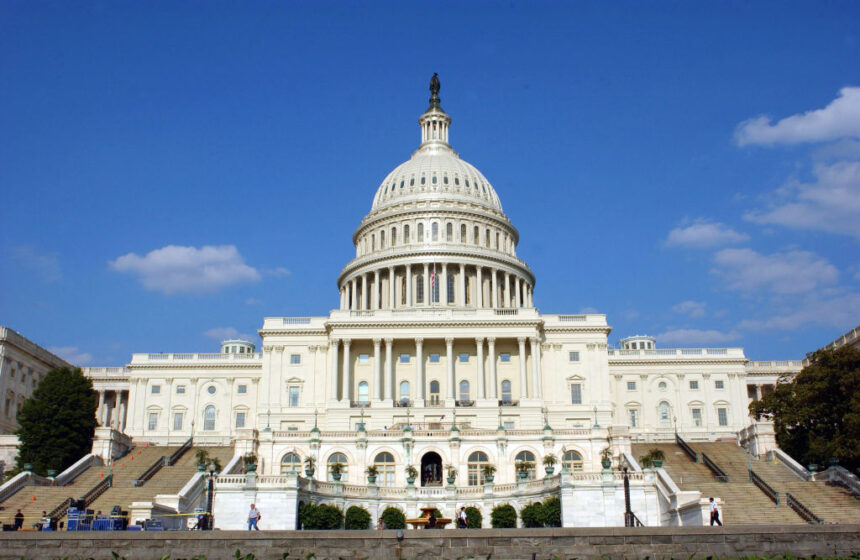It’s crunch time on Capitol Hill and — once again — several healthcare-related items hang in the balance.
Congressional lawmakers have until September 30 to pass a spending deal to avoid a government shutdown, the first since 2019.
However, sharp contention between House Democrats and Republicans has resulted in a gridlock over a bipartisan spending bill that advanced last week, with a group of conservative lawmakers aiming to block the legislation from going forward.
There appeared to be some progress Wednesday among Republicans in getting closer to an agreement on a spending deal to bring back to the floor for a vote.
By Thursday evening, though, GOP leadership told lawmakers to go home but be on call to return to Washington, D.C. to continue negotiations over the bill.
Ultimately, it’s unclear whether Congress will be any closer to averting a government shutdown by the time Monday rolls around.
Outside of congressional inaction, the White House released a memo Wednesday arguing that “extreme House Republicans” continue to demand a “reckless laundry list of partisan proposals” as a condition of keeping the government open. The Biden administration charged that GOP hard-liners are seeking cuts to federal programs that serve millions of people, including those that provide healthcare services.
The White House noted that the small group of conservatives were devising their own bill that would make cuts to food safety and public health, target fentanyl trafficking and stall research on cancer and Alzheimer’s disease.
Without a short-term funding fix, the government could be headed towards a shutdown in 10 days, which could impact several such public health programs.
While legacy programs like Social Security and Medicare would continue in the event of a shutdown, other health programs – including the Community Health Center Fund (CHFC), which sends federal funding to health centers – could be halted, among others.
Here’s a rundown of some of the main health items that might be affected.
Community health center funds
The CHFC — authorized under Section 330 in the Public Health Services Act — is responsible for funding health centers across the nation that provide primary care services.
Many of these federally qualified health centers (FQHC) are essential for residents in rural and low-income communities. About 70% of funds from the CHFC go towards health centers and those are set to expire by the end of the month.
If funding isn’t renewed, the health centers could face significant reductions to their budgets, and have to cut certain services like dental or behavioral healthcare.
In addition to Section 330 grants, CHCF funds help provide care to patients who are uninsured or under-insured and has helped community health centers expand on the services they provide to reach more patients in the midst of a primary care shortage.
The Pandemic and All Hazards Preparedness Act
Though the nation is nearly six months removed from the end of the emergency phase of the COVID-19 pandemic, contingency plans for a future outbreak could be jeopardized by a federal shutdown.
The closing of the government would leave the reauthorization of the Pandemic and All Hazards Preparedness Act (PAHPA) up in the air, which could affect the nation’s response to future COVID-19 spikes or new viral outbreaks.
While a government shutdown wouldn’t halt PAHPA in entirety — some emergency pandemic preparedness initiatives can receive funding through annual appropriations — other provisions may be cut.
NIH clinical trials
A shutdown would also impact the National Institutes of Health (NIH) by halting funds for new clinical trials.
The White House argued this week that it would hamper “critical research on diseases like cancer and Alzheimer’s.”
The concerns echoed similar ones raised by Dr. Anthony Fauci in his capacity as director of the National Institute of Allergy and Infectious Diseases in 2018.
He told the Associated Press that the NIH would still care for patients but added that “you never want” to put them in a compromised position through a shutdown.
While ongoing clinical trials wouldn’t be affected, cutting-edge studies or experiments could be interrupted, leaving sick patients in uncertainty.
“New patients, many of whom are desperately waiting for a chance at new treatment through a clinical trial, will be turned away,” the White House stated in its latest memo.
PEPFAR
In contrast to previous government shutdowns, which also focused on debates over other areas of federal health policy, a significant portion of the debate surrounding these spending bill proposals center around the President’s Emergency Plan for AIDS Relief, or PEPFAR, which spearheads the nation’s global HIV/AIDS response.
This year, politicization of the bill — which was originally passed in 2003 under the George W. Bush administration — is threatening its reauthorization.
Some Republicans have sought to block reauthorization for the program, claiming that it offers funds to organizations that provide abortions.
Historically a bipartisan bill, its proponents argue that it’s been a successful one. Bush himself has recently called on Congress to renew the bill, citing its role in saving millions of lives worldwide.
“The reauthorization is stalled because of questions about whether PEPFAR’s implementation under the current administration is sufficiently pro-life,” Bush wrote in an op-ed in The Washington Post. “But there is no program more pro-life than one which has saved more than 25 million lives. I urge Congress to reauthorize PEPFAR for another five years without delay.”







